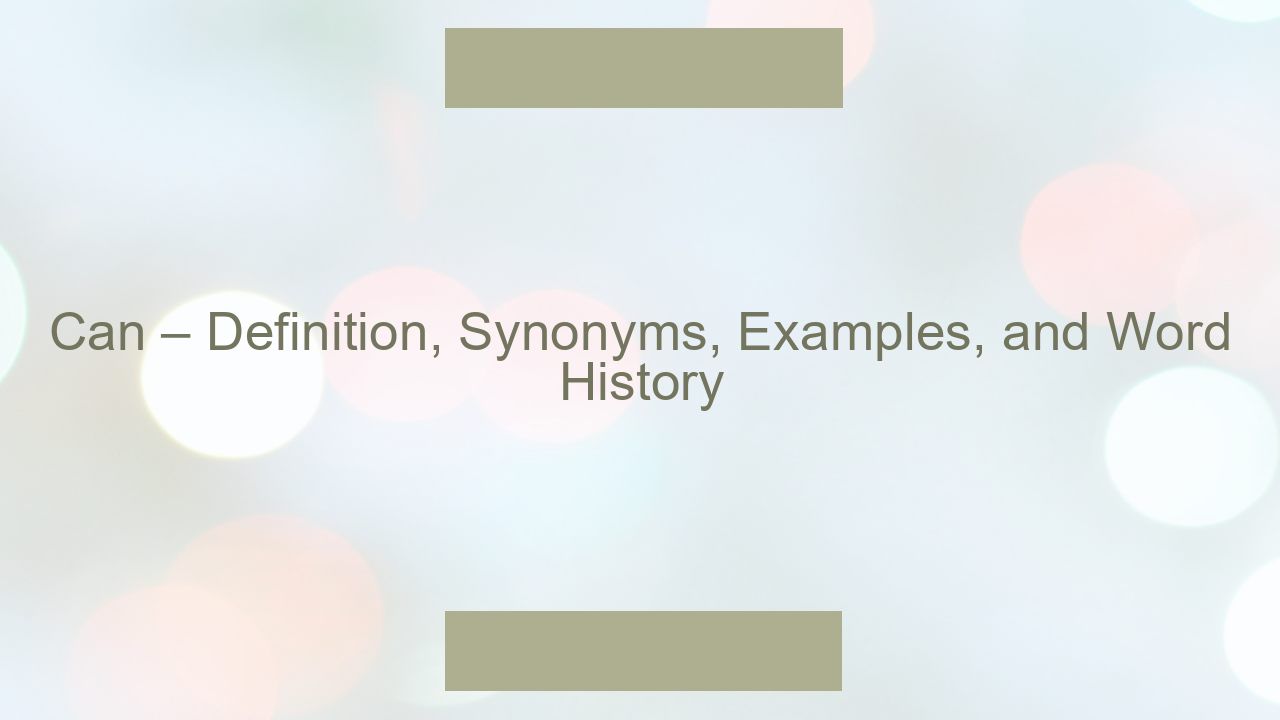The word “can” is one of the most versatile and frequently used words in the English language. As a modal verb, it plays a crucial role in expressing ability, permission, and possibility, making it essential for everyday communication. Whether you’re a learner or a native speaker, understanding the ‘can meaning’ and its various uses can significantly enhance your language skills.
Definition (Meaning)
The word “can” primarily functions as a modal verb indicating ability, permission, or possibility. It is used to describe what someone is capable of doing, to ask for or grant permission, or to suggest something that might happen.
Synonyms
Depending on the context, synonyms for “can” include “be able to,” “may,” and “might.” However, these alternatives may not always fit perfectly due to the nuanced uses of “can” in different situations.
Examples of can in a Sentence
- She can play the piano beautifully, showcasing her musical talent.
- Can I borrow your book for a day or two?
- If you study hard, you can achieve your dreams.
Word History
The word “can” traces its origins to Old English “cunnan,” which meant “to know” or “to be able to.” It is related to similar words in other Germanic languages, such as the Old Norse “kunna.” Over time, its meaning evolved to focus on ability and permission, becoming a fundamental part of modern English grammar.
